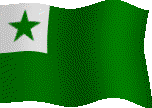← Pages

Only Groups 2, 3, 4, and 5 are complete. The rest of the list is a work in progress. Do not trust anything outside these previously mentioned groups.
Why I Made This List: This list is largely just a translation of the Academy's own Set of Basic Oficial Roots (BRO). I made it for two reasons: first, so that it may be more easily used as a resource by new learners of the language; second, because the BRO simultaneously has too many non-Fundamenta roots which aren't very useful and lacks some Fundamenta roots which are useful; and third, related to the previous, to serve as a model to those who seek to use Esperanto with as few roots as possible.
Given that Esperanto's original goal was to be an auxiliary language, I hope to eventually make a Spanish version of this list and would welcome the help of anyone who wants to make translations into other languages.
How to Use This List: The words are shown on one side with the meanings on the other. The idea of this list is that if you learn just these roots, you'll almost never need to use any others, and in fact anything not on this list should be avoided.
Of course, no limited set of roots could possibly be appropriate in all circumstances, so there are some settings where using roots not in this list is justified: I'll add criteria for this soon. And of course, everyone is entitled to use roots in the original text of La Fundamento regardless of what this list says. Fortunately, most of those roots are already here.
Roots with ~ after them indicate that the word on the right is an optional alternative to the root on the left. Red roots with → after them are borderline useless and I personally recommend never using them. Gender neutral words with an * are not official, so they might not be understood. Use them at your own risk!
lern'i learn → lern'ej'o school → lern'ej'estr'o principal
memor'i remember → memor'ig'i remind → memor'ig'end'a ...to be reminded
|
|
|